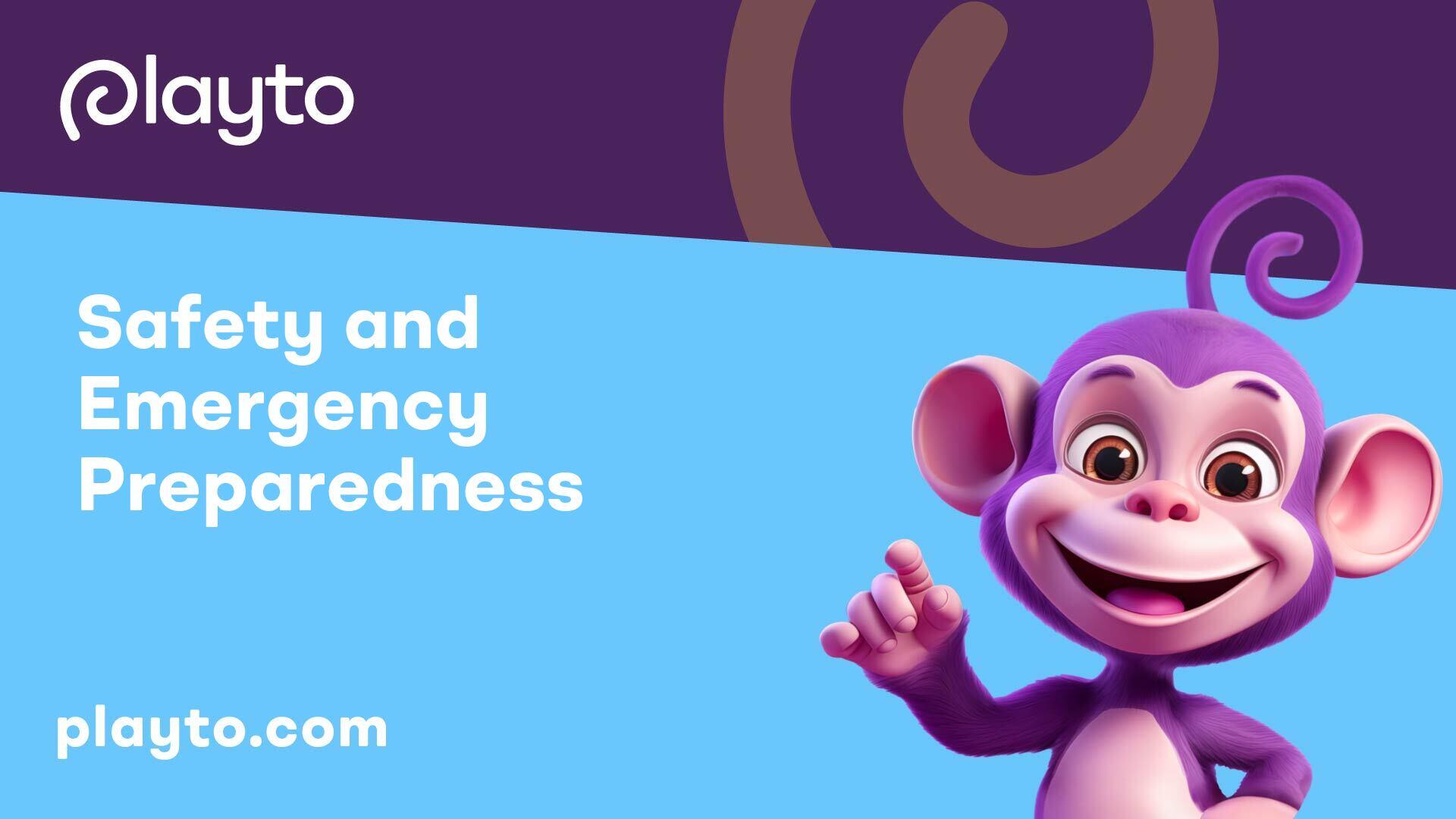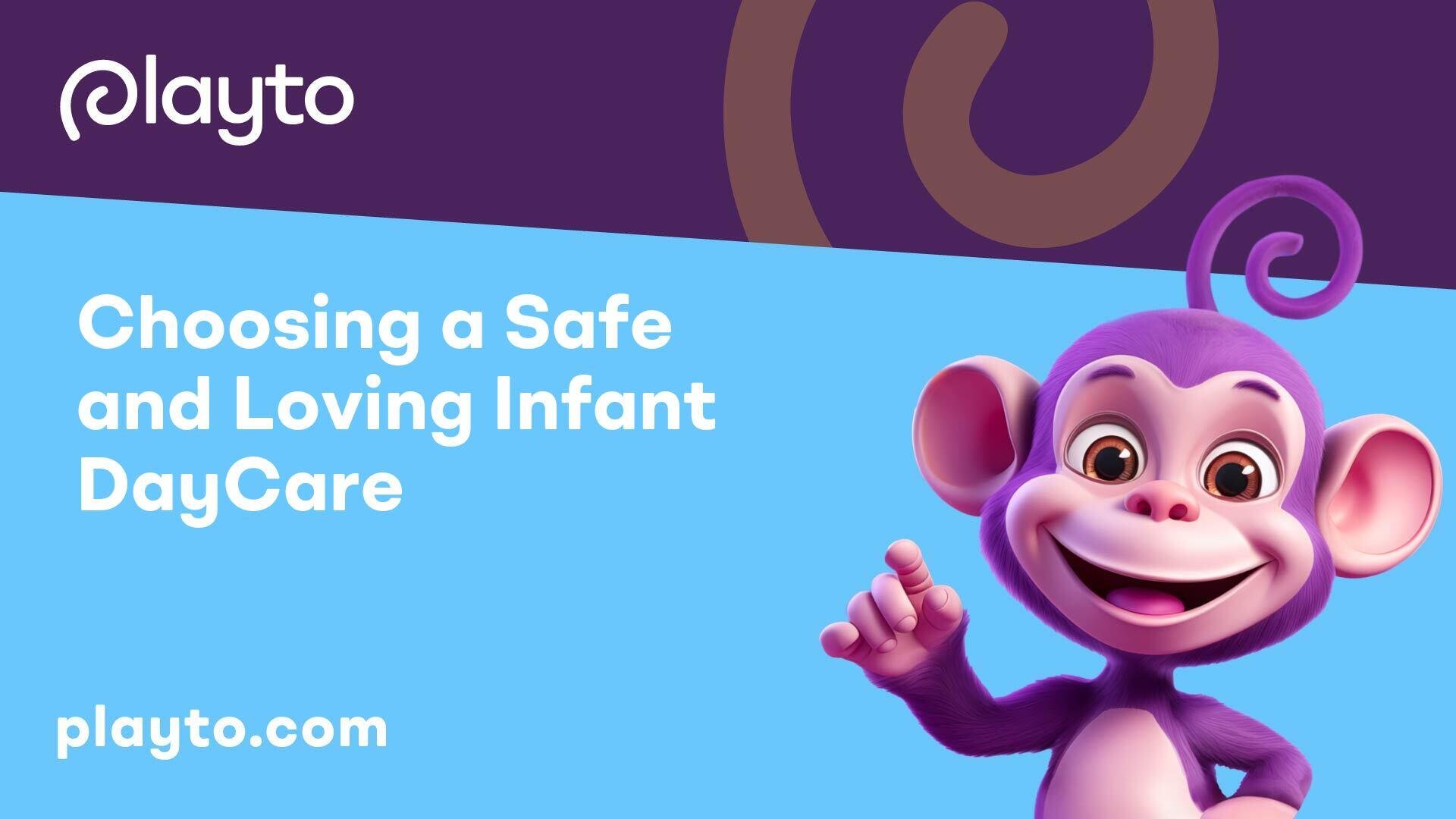
Choosing the Right Daycare Center
When it comes to choosing a safe and loving infant daycare, parents in New York must consider several crucial factors to ensure the well-being and development of their children. Two key aspects to focus on are the importance of background checks and staff-to-child ratios in daycare facilities.
Importance of Background Checks
Federal law mandates that all staff in licensed child care programs must undergo state and federal criminal background checks to safeguard the welfare of children. These checks are conducted before hiring a staff member and are required to be repeated at least once every 5 years. By performing thorough background checks, daycare centers can ensure that all individuals interacting with children have passed necessary screenings and do not pose any risk to the children's safety.
Staff-to-Child Ratios
Another critical aspect to consider when selecting a daycare center is the staff-to-child ratios. Federal law requires states and territories to establish standards for child group sizes and staff-to-child ratios to ensure the safety, well-being, and development of children in childcare programs. Adequate staffing is essential to provide individualized care and attention to each child and maintain a safe environment.
State regulations often dictate the appropriate child-to-staff ratios, ensuring that there are enough qualified caregivers to supervise and interact with the children effectively. The ratios may vary based on the age of the children in the facility, with specific guidelines on the number of teachers or adults required per child. It's essential for parents to inquire about the staff-to-child ratios at prospective daycare centers to ensure that their child will receive the attention and care they need.
By considering the importance of background checks and staff-to-child ratios when evaluating daycare centers, parents can make informed decisions that prioritize their child's safety, well-being, and overall development. Conducting thorough research and asking relevant questions can help parents identify a daycare center that aligns with their values and provides a nurturing environment for their infants.

Safety and Emergency Preparedness
Ensuring the safety and well-being of children in daycare centers is paramount, especially in emergency situations. Daycare centers must have comprehensive emergency plans in place to address various scenarios and ensure the protection of children, staff, and visitors. Let's delve into the importance of emergency plans for daycare centers and the significance of practice drills and evacuation procedures.
Emergency Plans for Daycare Centers
Daycare centers must have well-defined emergency plans that outline practices and procedures to prepare for and respond to emergency or disaster situations [1]. These plans are crucial for guiding childcare providers during crises, including natural disasters, medical emergencies, and unforeseen events. An effective emergency plan for daycare centers encompasses several key components:
- Risk assessment to identify potential hazards and vulnerabilities within the facility.
- Maintenance of an emergency contact list to ensure swift communication with parents, emergency services, and relevant authorities.
- Defined evacuation procedures that specify routes, assembly points, and responsibilities during evacuations.
- Communication protocols to relay essential information to caregivers, staff, and emergency responders.
- Medical response plans to address health-related emergencies and administer first aid when necessary.
- Reunification strategy to safely reunite children with their families in the aftermath of an emergency.
Practice Drills and Evacuation Procedures
In addition to having a comprehensive emergency plan, daycare centers should regularly conduct practice drills and prepare staff and children for emergency situations. Practice drills help familiarize individuals with evacuation routes, emergency protocols, and appropriate responses in different scenarios. By rehearsing these procedures, daycare staff can improve their readiness and efficiency in managing emergencies.
During practice drills, staff members can simulate various emergency situations, such as fires, severe weather, or lockdowns, to ensure that all stakeholders are well-prepared to respond effectively. Practice drills also provide an opportunity to assess the effectiveness of the emergency plan and identify areas for improvement.
Evacuation procedures play a crucial role in ensuring the safe and orderly evacuation of children in case of emergencies. Daycare centers should have designated evacuation routes, assembly points, and procedures for accounting for all children and staff during evacuations. Regular practice of these procedures helps reinforce safety protocols and enhances the overall preparedness of the daycare center.
By prioritizing emergency preparedness, daycare centers can create a secure environment that safeguards the well-being of children and staff during unforeseen events. Implementing comprehensive emergency plans, conducting practice drills, and refining evacuation procedures are essential steps towards ensuring the safety and security of everyone in the daycare facility.

Health and Wellness in Daycare
Ensuring the health and wellness of infants in daycare is paramount for their overall development and safety. Daycare centers play a crucial role in promoting oral health and hygiene, as well as monitoring immunizations and conducting health screenings for young children.
Oral Health and Hygiene
Maintaining good oral health is not only essential for a child's overall well-being but also contributes to their school readiness. Preventing tooth decay and promoting proper oral hygiene practices are key aspects of childcare. Daycare centers can support oral health by encouraging proper toothbrushing techniques, providing resources for a healthy mouth, and offering guidance on finding a dentist. For more information on oral health resources, check out the Oral Health page on ECLKC.
Incorporating daily routines that include oral hygiene practices can instill healthy habits in infants from a young age. Daycare providers should create a supportive environment that encourages children to brush their teeth regularly and learn the importance of dental care.
Immunizations and Health Screenings
Ensuring that infants are up to date on their immunizations is a critical aspect of maintaining a safe and healthy daycare environment. Childcare providers in programs like Head Start follow their state's Early and Periodic Screening, Diagnosis, and Treatment (EPSDT) schedule to promote the overall well-being of families and children in terms of physical health. Regular health screenings help in early detection of any health concerns and allow for timely intervention.
Moreover, early childhood programs prioritize safety practices by maintaining hazard-free facilities, materials, and equipment, and promoting safety practices like active supervision to reduce childhood injuries. By following health guidelines and ensuring that all children are immunized according to the recommended schedules, daycare centers contribute to creating a healthy and secure environment for infants.
When choosing a daycare for your child, inquire about their policies regarding immunizations, health screenings, and oral hygiene practices. Understanding how a daycare center prioritizes the health and wellness of children can give you peace of mind knowing that your infant is in a safe and nurturing environment. For assistance in evaluating daycare centers based on health and wellness criteria, refer to the infant daycare evaluation checklist.

Licensing and Certification
Ensuring that a daycare center meets all necessary state requirements for licensing and certification is a crucial aspect of choosing a safe and nurturing environment for infants. Let's delve into the specific aspects related to licensing and staff certifications in daycare facilities.
State Requirements for Daycare Centers
Most states mandate that childcare businesses obtain a license before commencing operations. The licensing process typically involves attending an orientation or training session, submitting an application, paying a fee, and undergoing an onsite inspection to confirm compliance with all regulatory requirements. These requirements are in place to ensure that daycare centers maintain high standards of safety, hygiene, and child welfare.
Furthermore, each state sets guidelines for child-to-staff ratios and group sizes to guarantee that each child receives adequate attention and care. These ratios are adjusted based on the age of the children present in the facility to provide appropriate supervision and support [3]. By adhering to these ratios, daycare centers can facilitate a nurturing and responsive environment that caters to the individual needs of every child.
Staff Certifications and Training
In addition to licensing requirements, staff members in daycare centers are often required to hold certifications and undergo specific training programs to ensure the well-being of the children under their care. Most states mandate that daycare staff possess certifications in cardiopulmonary resuscitation (CPR) and first aid to address emergency situations promptly and effectively.
Moreover, the qualifications for childcare center directors vary across states. Some states necessitate a degree in child development, social work, education, or related fields for directors, while others may require a high school diploma or completion of relevant coursework. These diverse requirements aim to ensure that daycare center leadership possesses the knowledge and skills essential for creating a safe and enriching environment for infants and children.
By adhering to state licensing regulations and ensuring that staff members hold the necessary certifications, daycare centers can provide a secure and stimulating setting where infants can thrive and develop. Parents seeking quality care for their little ones can rely on licensed facilities that prioritize regulatory compliance and staff expertise to deliver the best possible care.

Security Measures in Daycare Centers
When it comes to ensuring the safety and well-being of children in daycare centers, implementing robust security measures is paramount. These measures encompass both internal safety protocols designed to safeguard the children within the facility and external security concerns related to potential threats from outside sources.
Internal Safety Protocols
Internal safety protocols in daycare centers are essential to creating a secure environment for children. This includes physical safety measures such as ensuring non-slip surfaces and furniture without sharp edges to prevent accidents and injuries. Implementing secure entry and exit points, utilizing surveillance cameras, and maintaining secure storage for hazardous materials are crucial components of internal safety protocols. Regular safety inspections and staff training on emergency procedures further enhance the internal security of daycare centers.
It is imperative for daycare centers to prioritize the safety and well-being of children by conducting thorough background checks on all staff members. By vetting employees carefully and seeking recommendations, daycare centers can mitigate the risk of neglectful situations and ensure a safe environment for all children under their care. For more information on the importance of these security measures, visit Procare Software.
External Security Concerns
External security concerns pose additional challenges for daycare centers, as they need to be vigilant against potential intruders or kidnappers. Ensuring approved parental and guardian pick-ups is essential to safeguarding children, especially in cases involving custody battles. In 2019, there were 421,394 reported cases of missing children, highlighting the importance of stringent security measures in daycare centers to prevent unauthorized access and protect the children in their care.
By implementing strict security protocols for entrance and exit procedures, verifying the identity of individuals picking up children, and maintaining clear communication with parents and guardians, daycare centers can enhance their readiness to address external security threats effectively. It is crucial to stay proactive and continually review security measures to adapt to evolving challenges and ensure the safety of all children in the daycare setting. For further insights on external security concerns, refer to Procare Software.
By prioritizing both internal safety protocols and external security concerns, daycare centers can create a safe and nurturing environment that instills confidence in parents and promotes the well-being of children under their supervision. Efforts to address security measures comprehensively demonstrate a commitment to providing a secure and loving daycare experience for all families.
National Accreditation and Ratings
When it comes to choosing a safe and loving infant daycare, parents in New York should prioritize centers that hold reputable accreditations and high ratings. Two key accreditation and rating systems to consider are the NAEYC Accreditation and Keystone Star Ratings.
NAEYC Accreditation
The NAEYC (National Association for the Education of Young Children) sets the gold standard for evaluating the quality of providers of early childhood education. Daycare programs that earn NAEYC Accreditation have demonstrated a commitment to meeting rigorous standards in various key areas, including relationships with children, curriculum, teaching approaches, health, and safety measures, among others.
For instance, The Village Cares proudly holds the esteemed NAEYC Accreditation, making it the only provider of services from birth to age 6 within a considerable radius in California, PA. This accreditation serves as a testament to the center's dedication to providing high-quality care and education to young children.
Keystone Star Ratings
In addition to national accreditations, it's essential to consider local rating systems that evaluate daycare centers based on specific criteria. In Pennsylvania, the Keystone Star Ratings are used to assess the quality levels of early childhood providers. The ratings range from one to four stars, with a Keystone Star 4 rating representing the highest level of quality.
For instance, facilities like The Village have undergone evaluations by the state and have been awarded a prestigious Keystone Star 4 rating. This recognition highlights the center’s exemplary dedication to delivering exceptional care, educational experiences, and support to children during their crucial early years.
By selecting a daycare center that holds NAEYC Accreditation and Keystone Star Ratings, parents can have peace of mind knowing that their infants are in a safe, nurturing, and high-quality early learning environment. When exploring daycare options in New York, prioritize centers that have received such respected accreditations and ratings to ensure that your child receives the best care possible.
Inspections and Compliance
As a meticulous parent in New York seeking a nurturing and secure environment for your infant, understanding the process of inspections and compliance within daycare centers is essential to ensure a safe and loving atmosphere for your little one.
State Inspections and Citations
In New York, childcare facilities are subject to rigorous evaluations by the Department of Human Services (DHS) to maintain high standards of care for infants and children. The Village, a reputed childcare provider, undergoes annual inspections with a commendable record of minimal citations, typically averaging 1 to 2 administrative details per year. Public records of these inspections are accessible to parents, offering transparency and assurance regarding the facility's compliance with state regulations.
Compliance with Regulations
Compliance with state regulations is paramount for daycare centers operating in New York. Licensing requirements mandate that childcare businesses acquire a license prior to commencing operations. This process involves attending orientation or training sessions, submitting an application, and paying a fee. Moreover, centers must undergo onsite inspections to verify adherence to safety protocols, staff-to-child ratios, and overall quality standards as prescribed by state regulations.
Maintaining compliance with regulations not only ensures the well-being of children but also upholds a standard of care that promotes a safe and nurturing environment for infants. These guidelines serve to provide a framework for childcare providers to deliver high-quality services while prioritizing the safety and happiness of the children under their supervision.
By being aware of the inspection processes and compliance requirements within daycare centers, you can make an informed decision when selecting a childcare provider that aligns with your expectations and prioritizes the well-being of your infant. For more guidance on evaluating daycare facilities for your little one, refer to our infant daycare evaluation checklist to aid you in making the best choice for your child's care and development.
Financial Assistance and Quality Care
Ensuring that infants receive the best care possible involves considerations beyond safety and health. Financial assistance and the quality of care providers play a significant role in the decision-making process for parents seeking daycare services.
Childcare Subsidies
Families in need of financial assistance when choosing a daycare can explore childcare subsidies offered by programs like ChildCare Works (CCW). These subsidies aim to support families who qualify, enabling them to select high-quality care providers without compromising on the standard of care given to their children. CCW typically covers a portion of the tuition based on county rates for approved providers.
It's essential for parents to inquire about available childcare subsidies and understand the application process to alleviate the financial burden associated with quality daycare services. By utilizing these subsidies, families can access reputable daycare centers that meet the necessary standards for infant care.
Choosing High-Quality Care Providers
When selecting a daycare center, parents are encouraged to prioritize quality care providers. An ideal daycare facility should hold prestigious accreditations such as the NAEYC accreditation and Keystone Star 4 rating. These certifications signify that the center maintains high standards of care, safety, and early childhood education. Additionally, choosing a daycare with minimal citations from state inspections reflects a commitment to maintaining compliance with regulations and providing a safe environment for infants [4].
By opting for daycare centers that hold top-tier accreditations and ratings, parents can be confident in the quality of care their infants receive. These reputable centers not only offer a safe and nurturing environment but also prioritize early childhood development through structured programs and activities.
When navigating the process of selecting a daycare, it's crucial for parents to consider both financial assistance options and the quality standards of care providers. By striking a balance between affordability and excellence in care, families can ensure that their infants receive the best possible daycare experience, setting a solid foundation for their growth and development.
References
[2]: https://www.playto.com/blog/how-our-daycare-handles-emergencies
[3]: https://mybrightwheel.com/blog/what-certifications-do-i-need-to-open-a-daycare
[4]: https://thevillagecares.org/looking-for-a-child-care-center/
